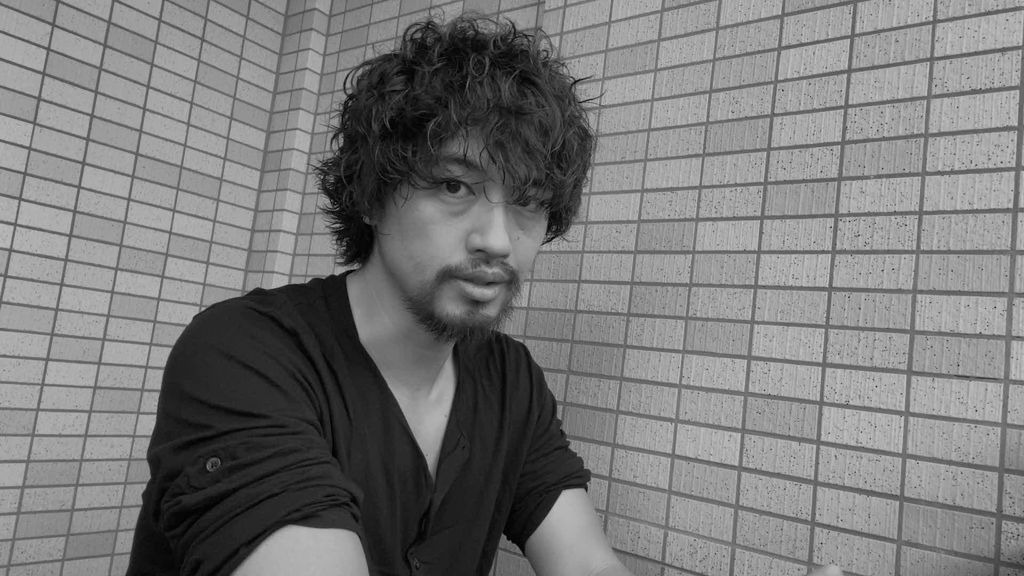Veteran director and special effects supervisor Shinji Higuchi (Shin Godzilla, Gamera: Guardian of the Universe) issued a viral challenge last year to his fellow kaiju enthusiasts struggling to maintain in our rapidly altered world due to the ongoing COVID-19 pandemic.
#KaijuDefeatCovid was a hopeful project of online interconnectivity, wherein industry professionals and fans alike would record a video of themselves “sending the energy” of their favourite kaiju monster out onto the worldwide web to be taken by another person, “fused” with their favourite kaiju monster, and for them to repeat the process in the hopes that their chosen monster would be the one to “defeat” the invisible enemy of the virus. In a time of crushing isolation and malaise, the project was a way to inspire kaiju fans to remain optimistic in these trying times and to be reminded of a community of like-minded people going through the same struggle around the world.
One such inspired enthusiast was director Shunji Iwai, who took the cause of #KaijuDefeatCovid and wrote and directed a web series reflecting on the hopeful theme of Higuchi’s original campaign in his usual muted style. As the title indicates, The 12 Day Tale of the Monster That Died in 8 follows 12 days in the pandemic stay-at-home lifestyle of Takumi Saitoh (playing himself) as he grapples with the mundanity of adhering to Japan’s COVID regulations.
To ameliorate his boredom and listlessness, he decides to start raising “Capsule Kaiju” at the prompting of his friend/mentor, Higuchi (also playing himself). The film chronicles his efforts like a video diary as he monitors his monsters’ growth, all the while routinely checking in with his friends over Zoom (Non and So Takei, also themselves) to cling to their dwindling sense of connection confined to their homes. He also spends his days routinely checking in on a YouTuber (Moeka Hoshi), who is also in the midst of their project to raise kaiju. The thrust of the film is bound to ring familiar after our own collective period of time-filling in confinement. Imagine if you will Saitoh’s kaiju growing is just his version of sourdough bread baking.
Limiting as the pandemic centric film is, Iwai’s notably poetic and lyrical style proves challenging to adapt to the restraints of filming under Covid. The crisp black-and-white cinematography is at times breathtaking, especially during the sequences where Iwai’s camera drifts through the barren streets of Tokyo as a haunting reminder of what was lost in these trying times. But when viewed through the constrained perspective of a Zoom window or a video diary address the effect is decidedly muted. Working within the realities of lockdown means much of the The 12 The film feels unavoidably stagnant and lacking impact; in reflecting the tedium of everyday life stuck at home, 12 Day Tale can’t help but feel inert, even with the added flavor of constant kaiju references and industry in-jokes.
The film settles into a dormant state as Saitoh’s Capsule Kaiju constantly mutates into different forms and he struggles to identify which species of giant monsters he is growing. While the thrust of Higuchi’s viral campaign was to inspire hope through a shared love kaiju media, Iwai’s take carries a blase disposition and constantly mixes its metaphors about what exactly Saitoh’s homegrown kaiju project represents.
As his three kaiju (Avigan, Remdesivr and Ivermectin) begin to resemble different notable movie monsters, the film is bereft of a sense of direction due to its banal storyline and episodic structure, courtesy of its original release model. The metaphor at one point gets absurdly on the nose as his capsule monster in one vlog resembles the COVID-19 molecule, and then in another, it looks exactly like a face mask. There are tacit acknowledgements of the sober realities of living under COVID to be gleaned from Iwai’s script, but they are rarely emphasized and only come out as asides in the many Zoom conversations Saitoh has with his friend network.
Iwai’s repetitive pseudo-kaiju film is a slough that lands awkwardly on a heartwarming if feeble message to stay strong and to lean on the power of the collective hope and imagination we get from the media we consume. This is without even mentioning that the majority of pandemic-centric fiction films are still uncomfortably “too real” and hit too close to home when we are still very much going through it. The proverbial pandemic movie remains a hard nut to crack, and while certain films are able to transcend the dreary realities of this setting (Language Lessons, Borat Subsequent Moviefilm and Host, to name a few), Iwai’s film stumbles in tackling the same subject. Good intentions and kaiju references can only get you so far.








